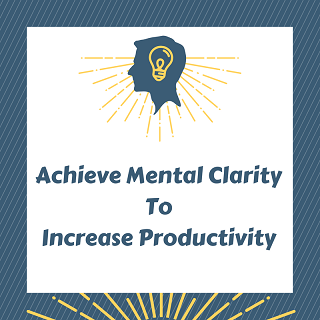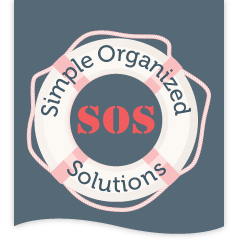 Have you ever had a problem you couldn’t resolve or a task to complete that you just couldn’t focus on? Of course, we all do at some time or another. Living in such a fast paced environment, with so much to remember and so much to do, it’s not surprising that this happens, and probably on a regular basis. Achieving mental clarity provides focus.
Have you ever had a problem you couldn’t resolve or a task to complete that you just couldn’t focus on? Of course, we all do at some time or another. Living in such a fast paced environment, with so much to remember and so much to do, it’s not surprising that this happens, and probably on a regular basis. Achieving mental clarity provides focus.
External stimuli are contributors to this mind clutter, in fact everything you see turns into thoughts which can turn into clutter. Our minds have a tendency to constantly race to try and keep up with this hectic pace. When we enter this state, it’s difficult to focus and that leads to reduced productivity. Prolonged periods of this state of mind can take its toll on our mind and body, and can lead to things like stress, fatigue, and depression, to name a few. It’s just not a healthy way of life.
In order to keep up with our hectic lives, reduce the wear and tear on our bodies, and be more productive, we need to learn how to achieve mental clarity. After doing some research on the subject, there seems to be a common theme among the experts, sleep. Actually, REM is the deep sleep that clears the clutter from our brains. However, only a small percentage of our sleep time is REM, so it doesn’t completely de-clutter our minds. After a good night of sleep, most of us are relaxed, so it’s a good time to focus on solutions to issues that we couldn’t find answers for the day before. That’s why you hear the phrase, ‘let me sleep on it’ from those wanting to make the best decisions.
There are other methods to consider on your quest to mental clarity. Meditation works wonders to clear the mind and reduce stress. However, if you are someplace where meditation may not be appropriate, like work, just getting up from your desk and taking a brisk walk outdoors or even doing a few stretching exercises can clear the cobwebs from your brain. Walking my dog first thing in the morning does the trick for me. I’m reminded of the quote by John Burroughs, “I go to nature to be soothed and healed, and to have my senses put in order.”
There’s a lot to be said for some fresh air and exercise. So, the next time you need a solution to a nagging problem, try taking a walk, you might be surprised by how quickly you find the answer. This is achieving mental clarity.
What do you do to achieve mental clarity?


